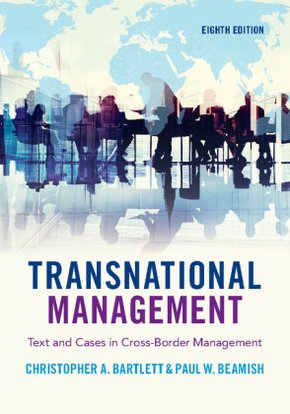Transnational Management - Text and Cases in Cross-Border Management
| Verlag | Cambridge University Press |
| Auflage | 2018 |
| Seiten | 570 |
| Format | 17,9 x 25,4 x 2,4 cm |
| Gewicht | 1166 g |
| Artikeltyp | Englisches Buch |
| ISBN-10 | 1108436692 |
| EAN | 9781108436694 |
| Bestell-Nr | 10843669UA |
Transnational Management offers a uniquely global focus on strategic development, organizational capabilities and management challenges.
Transnational Management offers an integrated framework describing the strategic tasks, organizational capabilities and management roles and responsibilities for successful and responsible managers of international businesses in today's global environment. Original frameworks, influential concepts and practical examples are included throughout.
Inhaltsverzeichnis:
Introduction; 1. Expanding abroad: motivations, means and mentalities; 2. Understanding the international context: responding to conflicting environmental forces; 3. Developing transitional strategies: building layers of competitive advantage; 4. Developing a transitional organization: managing integration, responsiveness, and flexibility; 5. Creating worldwide innovation and learning: exploiting cross-border knowledge management; 6. Engaging in cross-border collaboration: managing across corporate boundaries; 7. Building new management capabilities: key to effective implementation; 8. Shaping the transnational future: defining an evolving global role.
Rezension:
'If I were an MBA student studying anywhere in the world this is the book I would want as the textbook for my global strategy course. As a faculty member, this is the book I would pick for my case-based global strategic management course. Why? It's a book in its 8th edition written by world-class experts on the topic. A book written with succinct but comprehensive introductions to cases that are complex and true-to-life. A book that discussed strategies and structures of twenty-first century multinationals: parents, subsidiaries and their alliance partners. A book that covers twenty-first-century issues such as sustainability, corruption, and emerging economy multinationals. In Transnational Management, managers of multinationals are engaged in games of global chess, using integration, responsiveness and worldwide learning to engineer long-run competitive advantage. This is the way that global strategy should be taught. Enjoy!' Lorraine Eden, Texas A & M University, President, Aca demy of International Business

